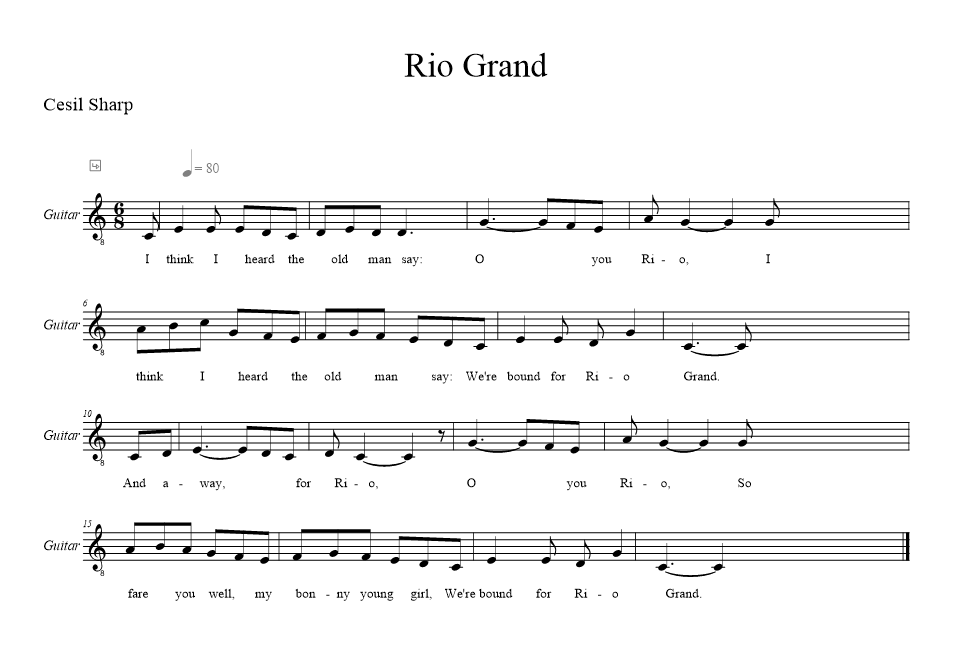Interesting Facts about Bound for the Rio Grande (Cecil Sharp Version)
The Bound for the Rio Grande (Cecil Sharp Version), is Cecil Sharp’s version of “English Folk Chanteys” (1914). Sharp’s shantyman sings of what one can see when one arrives in port. “Rio Grande” was always sung at the anchor capstan or windlass, and was an outward-bound song. In “Shanties from the Seven Seas” Stan Hugill Mentioned only this version.
The song will be reconstructed by myself as the brake windlass shanty.
The source of this sea shanty
The music: “English Folk-Chanteys” (1914) – Cecil James Sharp (1st ed p 24).
The lyrics: “English Folk-Chanteys” (1914) – Cecil James Sharp (1st ed p 14).
Mentioned in: “Shanties from the Seven Seas” by Stan Hugill (1st ed p 93).
The Record
You also can find this record on my YouTube channel here or directly listen below. Additionally, if you want to share your opinion about the record or share your opinion you can do it in my Facebook forum here, or leave a comment at the bottom of this blog article.
The musical notation

The full lyrics
Bound for the Rio Grande (Cecil Sharp Version)
I think I heard the old man say:
– O you Rio,
I think I heard the old man say:
– We’re bound for Rio Grand.
– And away, for Rio,
– O you Rio,
– So fare you well, my bonny young girl,
– We’re bound for Rio Grand.
* 2 *
O Rio Grand is my native land.
O Rio Grand is my native land.
* 3 *
It’s there that I wound take my stand.
It’s there that I wound take my stand.
* 4 *
She’s buxom young maid with a rolling black eye.
She’s buxom young maid with a rolling black eye.
* 5 *
She came from her dwelling a long way from here.
She came from her dwelling a long way from here.
* 6 *
I wish I was in Rio to-day.
I wish I was in Rio to-day.
* 7 *
Buckle sailors you’ll se there,
With long sea-boots and close cropped hair.

